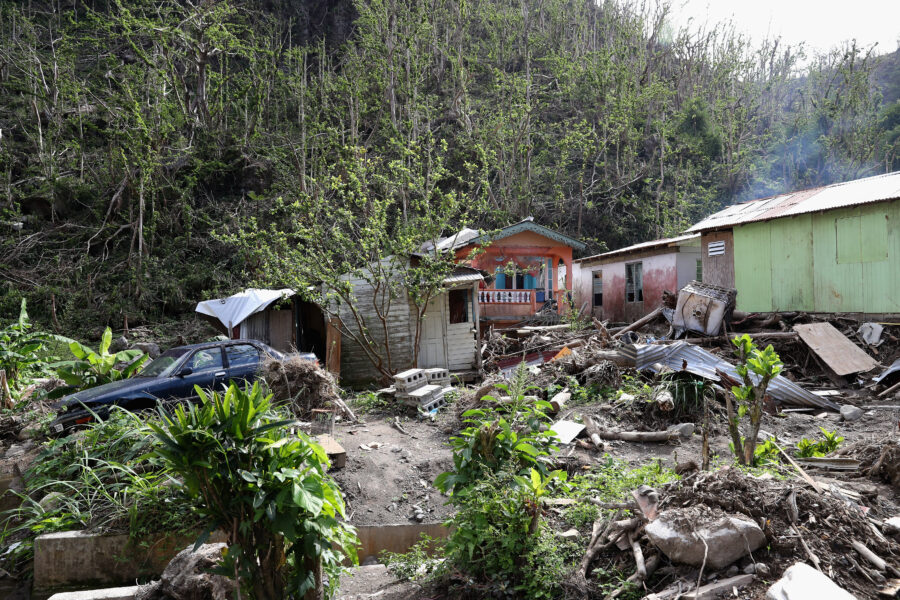Environmental Protection Agency Administrator Scott Pruitt said on Thursday that the United States should exit the Paris climate agreement. The comments are his strongest yet on a question that has divided the Donald Trump administration, even as it seeks to roll back the nation’s commitment to act on climate change.
“Paris is something we need to look at closely. It’s something we need to exit in my opinion,” Pruitt said in an interview on the Fox & Friends morning news program.
“It’s a bad deal for America,” he said. “It’s an ‘America second, third or fourth’ kind of approach.”
The White House has said it expects to flesh out the administration’s official position on Paris in a month or so.
Pruitt’s statement puts him at odds with Secretary of State Rex Tillerson, the former chief executive of ExxonMobil, who said during his confirmation hearing that it was important for the U.S. to “maintain its seat at the table.”
Even some big U.S. coal companies have taken a similar position. They have argued in recent weeks that the pact offers their best chance to advocate for coal in the world’s future energy mix, perhaps by promoting technology to capture emissions and store them underground.
Other Trump supporters have said that even if the U.S. stays in the Paris process, it should abandon its pledges to cut emissions, which probably cannot be met if the administration succeeds in killing Obama-era pollution control rules.
But Pruitt said the United States “frontloaded all of our costs” under the Paris accord, while “China or India had no obligations under the agreement until 2030.” In fact, the Paris agreement is the first climate pact that requires emissions-cutting commitments from all of the more than 190 nations that signed it, although each commitment is different, determined by individual countries.
The treaty was not mentioned in the March 28 executive order that called for repealing the Obama administration’s Clean Power Plan and took steps to roll back other U.S. climate policies.
In an April 3 interview with Fox’s Chris Wallace, Pruitt appeared to endorse maintaining a role in the Paris talks.
“Engagement internationally is very important,” he said. “To demonstrate the leadership that we have shown on this issue with China and India and other nations is very important. Those discussions should ensue.”
In Thursday’s interview, Pruitt said his main objection to the treaty was “that America was put last.
“The previous administration went into Paris and America was going to cost itself jobs as it relates to its obligations there,” he said.
“People say that it’s not enforceable,” Pruitt continued. “Every meeting I’ve had with my counterparts from Germany, Canada and others, the first question they ask me is, ‘What are you going to do to comply with Paris?’ So What that means is contracting our economy to serve and really satisfy Europe and China and India. They are polluting far more than we are. We’re at pre-1994 levels with respect to our CO2 emissions.”
The U.S., historically the world’s largest contributor of greenhouse gases and now No. 2 behind China, has committed to reduce its emissions by 26-28 percent below 2005 levels by 2025. Per capita, Americans are responsible for much more carbon dioxide than the average citizen in any other populous country.
China agreed to cut its carbon emissions by 60-65 percent per unit of GDP by 2030, compared with 2005 levels, and boost its use of clean energy to 20 percent of its energy consumption. India’s target is for 40 percent non-fossil fuel capacity by 2030, and reducing its emissions intensity per unit GDP by 33 to 35 percent below 2005 by 2030.
Nathaniel Keohane, vice president on global climate at the Environmental Defense Fund, said that Pruitt was mistaken in his view of the treaty.
“Pulling out of the Paris climate accord would damage the U.S. more than it damages the Paris Agreement or climate action globally,” he said. “American leadership on climate is the key to attracting jobs and investment in the industries and sectors that will define the 21st century.”
“Even for Scott Pruitt, this is outrageous and beyond the pale,” said Tiernen Sittenfeld, senior vice president for government affairs for the League of Conservation Voters. “The U.S. helped to lead the world on this treaty and it’s clear that other countries are moving ahead because they see the incredible opportunities it offers.”
Pruitt’s statements come at a time when he has been under fire from some conservatives for not taking on the Obama administration’s finding that carbon emissions are an endangerment to human health and ecosystems. That finding is the legal foundation for the Obama administration’s efforts on climate change, including the Clean Power Plan. Pruitt said during his confirmation hearing that he did not anticipate a review of the endangerment finding.















